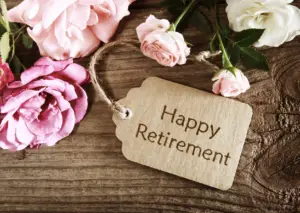It’s easy to get stuck in a routine, especially if you’re busy with work or school. But it would help if you were always looking for new ways to improve your skills and ensure your knowledge is up-to-date. As a writer, I’ve had to get creative about how I keep my skills sharp—and these methods have worked well for me:
1. Read More Books to Improve Your Skills

Reading is an effective way to learn new things and gain knowledge. It’s also something you can do anywhere and anytime. Reading can help you with your personal development, whether that means learning about yourself or picking up new skills that will help advance your career.
Reading books is one of the best ways to expand your mind because books are filled with helpful information on everything from health care to business management and leadership skills.
I recently watched “Inside Bill’s Brain – Decoding Bill Gates” on Netflix. Bill Gates is the billionaire co-founder of Microsoft. It was fascinating to see that this very successful business magnet continually reads many books to improve his knowledge and skills.
I used to think people like Bill Gates were born smarter than the rest of us, but the reality is yes, they are gifted, but their gift is enhanced by their curious minds and the quest for knowledge. Before we discount ourselves, let us at least start with a book or two on a topic that interests us. We can build this into a habit that will make us the next Bill Gates.
Fiction versus Non-fiction
Reading both fiction and nonfiction is essential. Nonfiction publications, such as school textbooks or personal development books, will teach you theories and principles, whilst nonfiction teaches you how to put theory and context into practice.
For example, English grammar has nouns, verbs, prepositions, and present and past tenses. In a fiction novel, you can see how these parts work together to make a good piece of writing. Reading fiction improves your vocabulary and ability to communicate.
Growing up, the emphasis was solely on nonfiction reading. My dad frequently scolded me for reading “Mills & Boon” novels. Still, despite my dad’s objections, I read hundreds of novels because It was my only source of escape and entertainment since there was no electricity, which meant no television.
I don’t mean to boast, but my final secondary school grades were far higher than those of my peers.
My final point about reading is the availability of books. Books were physical objects when I was a kid. I liked reading but did not have access to many books when living in Lagos. Everything has changed. Technology has simplified things. eBooks can be purchased through apps such as Kindle or audible books, which are read to you. If you’re reading this blog, you have access to a vast choice of books.
2. Daily Improvement
The best way to improve your skills and knowledge is by doing something new and challenging daily. Improvement comes from constant learning and doing, not just thinking and planning. The more you do, the better you get!
Read a book on a subject that interests you. Sign up for a class or workshop in your field of interest (e.g., photography classes)
Watch a documentary about an industry that interests you and then implement it. Don’t be a seminar junkie that is constantly learning but never doing anything with the knowledge gained.
3. Be a Lifetime Learner
Learning is an ongoing process that should be taken seriously. Being able to pick up new knowledge, abilities, languages, and ideas can make you more resilient and creative.
Avoid the “I know it all” mentality. This thinking is based on pride and will stifle your development potential.
My life mantra and rule is that I am wise enough to see that I could be wiser. There is always more to learn and greater room for growth.
Learning should be fun and not just about making money. Learning things just for fun helps our creativity, which leads to general satisfaction and contentment. The ” Wow, I did that” factor fosters a spirit of accomplishment. For example, my daughter recently signed up for a class on how to cornrow hair. The sense of accomplishment she got from learning a simple skill of cornrowing hair was immense and helped her in other money-making areas.
4. Listen to Podcasts
Listening to podcasts is a great way to learn new things and improve your skills. The great thing about podcasts is you can listen to them on the go, download them and listen to them later, or even stream them online. Most are free and easy to use! But don’t just listen to everything out there; choose topics that you are curious about and interested in.
5. Interact with People from Different Cultures
Another excellent way to improve your skills and knowledge is to interact with people from different backgrounds and cultures. Getting to know people from different cultures will:
- give you a new outlook which will lead to new ways of thinking, acting and solving problems.
- stretch your thinking and improve how you process information.
- enable you to avoid misunderstanding because you gain insights into people’s actions’ motivations, making you more likely to sympathise and identify with others.
- open your eyes to the possibility that your way of doing things isn’t the only acceptable way.
- help you learn how to tolerate and accept others just like you would like to be accepted.
6. Learn a New Language
The most obvious reason to learn new languages is that it helps us understand other cultures and connects us with people worldwide. But learning a new language is good for us in so many different ways.
Learning a new language is one of the best and most valuable ways to increase intellect, keep your mind active, and prevent brain ageing.
Speaking two languages boost memory, concentration, and attention span. This is because learning new languages encourages the growth of new brain cells.
You should never feel like you’re too old to benefit from learning a new language because doing so as an adult still helps.
I’m in my fifties and studying Russian and Kyrgyz, the primary languages in Central Asia, where I live. I can testify to the improvement in memory and mental sharpness.
7. Learn Through Experience
Learning through experience is the best way to learn. It’s the fastest and most fun way to grasp knowledge.
Want to be a better cook? Go ahead and try cooking some new recipes! Or get better at playing the guitar? Then, do those things! More practice time spent doing what we love most means more growth in our skillset and confidence in ourselves. You can do these things well enough on your own accord without anyone else’s help.
Final Thoughts
I really hope that you found this list to be both helpful and motivational. No matter how old we are, we should improve our abilities and expand our knowledge.
If you enjoyed reading this post, sign up for my email list, and I’ll send you new posts as they come out. You can also find additional blogs from me here!





